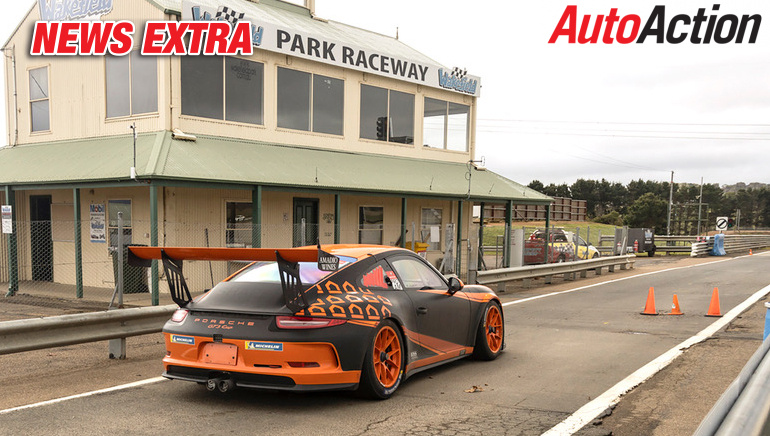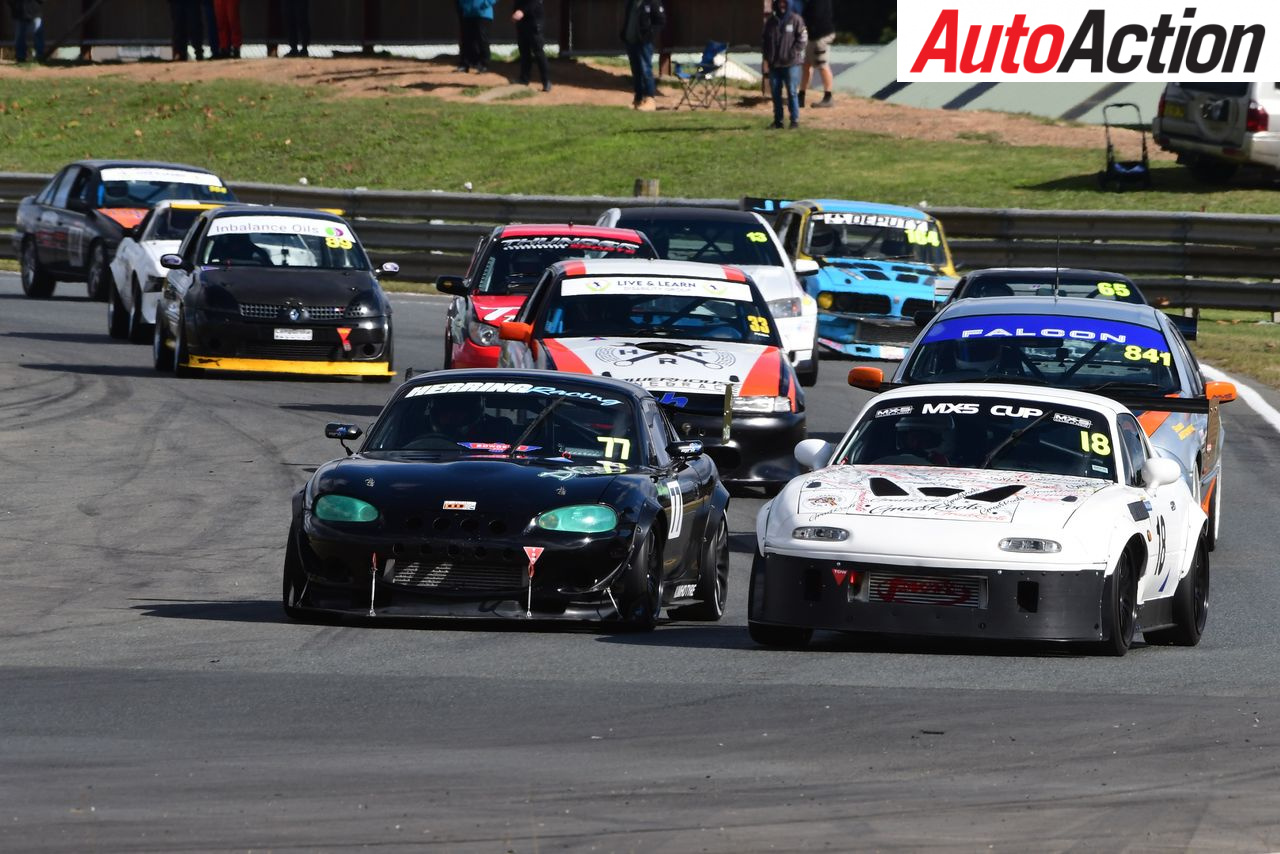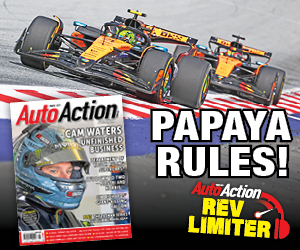WAKEFIELD PARK’s COURT SAGA

Appeal finding grabbing widespread attention.
By Timothy Neal
THE SAGA surrounding the embattled Wakefield Park Raceway could be a devastating blow for the future of motorsports in NSW, and is indicative of threats and closures faced all over the country.
The potential closure of Wakefield Park follows on from the NSW Land and Environmental Court (LEC) decision to impose untenable operational regulations upon the Benalla Auto Club (BAC) owned circuit.
Wakefield Park’s owners, the BAC, undertook LEC proceedings in relation to a new development consent for a significant upgrade to the facility that was issued by Goulburn Mulwaree Council on 13 July 2021, that consent was subject to numerous unworkable conditions.
An appeal was lodged by the BAC against the initial finding against the development, and as the result of proceedings, the Council proposed further and more stringent conditions.
Following that NSW LEC ruling, handed down on 13 July, the viability of Wakefield Park as a motorsport facility is now uncertain.
The regulations that were imposed by the then existing Goulburn council in July of 2021, were seen by the BAC as a death by a thousand cuts, with the number of operational days to dwindle down to 30 operational days per year by 2024.
Wakefield Park Raceway issued a statement on July 15, outlining its disappointment from the proceedings:
“The LEC decision is a shattering blow to the BAC, which submitted the Development application with an intention of upgrading and improving Wakefield Park’s facilities. Wakefield Park’s existence as one of only two permanent motorsport facilities in NSW is now in jeopardy. Nevertheless, the BAC recognises the importance of Wakefield Park not only to the local economy, but to the wider motorsport and automotive industries. It remains committed to exploring all options with every level of government to preserve the facility.”
The raceway was in need of the upgrade due to the high demand of use that the park was getting from both motorsport and non-motorsport activities, whilst also having to adhere to a council agreement to have a 25% allocation of non-active days due to residential complaints.

When the appeal to the LEC was overturned in favour of the raceway, the LEC took the councils then recommendations, as a stipulation to commencing the upgrades, meaning an immediate application of the regulations to no more than 30 days of yearly operation, and a strict adherent to noise levels of no more than 95 Decibels: an accepted industry standard that the park had already been adhering with.
“In regards to the four days a month we will attempt to see how we can operate, but that will be a loss making situation,” Bruce Robertson, the BAC vice president, told Auto Action.
“There are significant state ramifications for this. The loss of Wakefield park is an issue for NSW as a whole.
“There are many little facts regarding how we got to this point, but what we can’t now up-set, is the ability to have a “work through” driven by a political process. I actually think no parties to this dispute expected such a judgement. It is true to say that any “improvements” that the BAC wanted to build are now toast. It is now a fight for survival.”
The imposition from the LEC upon the raceway makes it economically and situationally impossible to keep its gates open for operations.
Despite the proven economic worth of the circuit to the Goulburn Area, and the local community benefits it provides, it appears likely that the track will cease operations completely if it cannot shake these imposed restrictions.
The Goulburn Mulwaree council, which has recently seen a turnover of personnel at the top, released a statement of support for Wakefield and its economic importance after a joint meeting, saying it will work closely with the BAC to keep it functional.
When Auto Action contacted the council for an update, the following statement was provided:
“Goulburn Mulwaree Council and the Benalla Auto Club have committed to working together in order to find a fair and balanced means of ensuring the facility’s survival, support the wider business community, and meet the needs of nearby residents.”
Prior to the application for its $3.5 million facility upgrade, an independent review found that the track contributed $15 million worth of economic activity to the Goulburn Valley, which equates to a whopping $20 million for the state when travel expenses to the region are factored in.
Aside from motorsport activities, the park’s facility is used for a myriad of automotive activity, including defensive driving training and testing, NSW police and academy training, AFP and defence apartment use, and a series of charitable and motorcycle based activity.
In terms of direct motorsport activities, vital grassroots competitions will further suffer in a state that staggeringly has only one other track left in operation: SMP at Eastern Creek, a government owned raceway.
The judgement handed down by the Court, it’s important to note, was done so purely over environmental concerns, a clear dismissal over the economic side of the equation. The Goulburn council on the other hand, is strongly aware of the economic worth, and wants to work closely with the track.
The court’s decision opened up a huge area of political concern, not only for motorsport, but for economically vital activities like mining and trucking operations that have a direct noise impact on residential areas.
Residents have been speaking up, and the courts have listened, and acted.
“This is a real ‘oh my god moment,’ as in oh my god what does this mean for NSW, not just for motor racing circuits. This issue is bigger than Wakefield Park,” Robertson commented further.
“You don’t have to be a lawyer to work out that this judgement may have significant impact on other noisy activities and pursuits across NSW. I think the state politicians are recognising that as well.”
Motorsport Australia in turn released its own statement of support on July 19 through CEO Eugene Arocca, in which he stated that, “Motorsport Australia will always lobby for motorsport venues across Australia, and we will certainly be approaching the NSW Government about the recent Wakefield Park decision raising our understandable concern about the impacts this decision will have on the sport.
“We enjoy a strong relationship with governments around the country and we are well aware of the importance of these permanent venues. Our recent Ernst & Young economic report highlights how valuable motorsport events and by extension, the venues, are to the regions in which the sport takes place. Both State and Federal governments have been provided with this full report.”
The court decision has snowballed to the point where ABC news picked up the story and interviewed Arocca, showing that the effects of this court ruling are starting to grab people’s attention on a wider scale.
“If we now find that a handful of property owners, nearby, in a remote area can raise a complaint about noise, it really starts to put a shudder through the whole industry,” Arocca said on the ABC broadcast.
“I’m concerned, Australia-wide, that if you try and find a location that’s away from homes, then council allows homes to be built within a close proximity, then we’re going to have this very problem.
“If you start to take Wakefield out it’s going to have a flow-on effect to the whole industry,” pointed out Arocca.
The industry in Australia as a whole has developed a problem of disappearing race tracks, and if Wakefield disappears – as has been the relentless trend – then the grassroots level that makes the sport tick, will be in need of miracle reforms in order to survive.
Stay tuned for more on this story.






